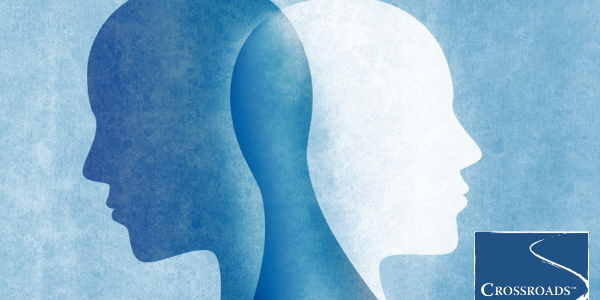If you’re struggling with addiction and a mental health disorder, such as depression or post-traumatic stress disorder, you may be wondering, “Is there a dual diagnosis treatment center near me that can support recovery?” With a little research, you can find out and be on your way to engaging in the treatment you need to effectively manage co-occurring disorders.
What Are Co-Occurring Disorders?
Before doing a quick Internet search for “dual diagnosis treatment center near me,” you want to have an understanding of what a dual diagnosis is. It can also be referred to as co-occurring disorders because it means that two or more conditions are occurring at the same time. Hence, the “co-occurring” part. For many people, this may be drug or alcohol addiction along with a mental health issue such as:
- Depression
- Anxiety
- Obsessive-Compulsive Disorder (OCD)
- Bipolar Disorder
- Post-Traumatic Stress Disorder (PTSD)
It could even include eating disorders as well. Whatever the case, both of the conditions are impacting a person’s well-being and the choices they make. In order to manage recovery from substance misuse and mental health disorders, they must be treated together so that all aspects of a person’s health are addressed. Treating one but not the other skips over underlying issues that may impact recovery and risk of relapse.
What Makes Co-Occurring Disorders Difficult to Treat?
There can be many co-occurring complications that can make these disorders challenging to treat. For instance, a person may use drugs or alcohol as a way of coping with the symptoms of a mental health disorder. Substance use may help them feel more relaxed, confident, or happy. It can help them to forget about their problems for a while. On the other hand, drinking or drug use can exacerbate mental health problems leaving people feeling more anxious, depressed, or paranoid. It can become a vicious cycle.
There can be shared symptoms between the two conditions or symptoms that cover up other issues that need to be addressed. By treating co-occurring disorders together, individuals understand how each condition impacts their well-being and how they affect one another in recovery.
What to Look for in a Dual Diagnosis Treatment Program
A quick search for “dual diagnosis treatment center near me” is likely to yield numerous results. You’ll want to do your research and find one that fits your needs. Centers that offer a personalized treatment plan can help you tailor your care to what might be most effective for the conditions you struggle with.
Rather than separate services and programs, look for a substance abuse treatment center that incorporates mental health care into addiction treatment and vice versa. These disorders do not exist in a silo, so you’ll want to learn strategies for managing your mental health while also coping with cravings for instance. Or different methods of dealing with anxiety without reaching for a drink. A good dual diagnosis treatment program addresses your physical, mental, emotional, social, and spiritual health and helps you to become the best version of yourself in recovery.
Find out if the treatment center treats specific mental health disorders or addictions and how their dual diagnosis program works. Do they have a multidisciplinary care team in place that is experienced in working with individuals with co-occurring disorders? Does everyone work together on developing a personalized treatment plan? You want to find a treatment center that treats both conditions with the same level of importance and understands what evidence-based practices align best with your recovery.
Crossroads is well versed in treating individuals with co-occurring disorders ranging from addiction and depression to addiction and eating disorders. There are specialized programs focused on the needs of women, as well as outpatient treatment for both genders. Make your health and well-being a priority by choosing a dual diagnosis treatment center like Crossroads that fits your needs and goals.


















